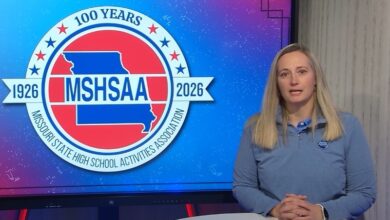Missouri Historical Society offers free video series about genealogical research
One of the hardest parts of tracing family history is determining where to start. The State Historical Society of Missouri can help.
The organization has released a series of 12 workshop videos aimed at teaching basic genealogy techniques. Hosted by Bill Eddleman, a professional genealogist and associate director of the society’s Cape Girardeau Research Center, each episode explores a different resource used to locate ancestor information and trace family history.
Earlier this year, the U.S. National Archives released the latest census records allowed by law, those from 1950. Census records are an important tool in family history research, and Eddleman discusses the census, its history and its use in genealogy. “The census is really the workhorse for many genealogists,” he said in part three of the series. “We learn a lot from the census, and it’s generally pretty accessible.”
Free and available online, “Basic Genealogy” explains how to use land, court, probate and vital records to find and follow the chronicles of an ancestor’s life. Eddleman also details a variety of popular online services and touches on how DNA testing has affected genealogical research. Additionally, Eddleman dives into using newspapers and manuscripts to expand upon a person’s story and illustrate the life beyond the records.
“We get an idea of the past and what it looked like from manuscript collections,” he said in part 10 of the series. “You might get insight into your ancestor, what they were doing, where they were located and even what sort of person they were if it’s a really good manuscript source.”
The series closes with a discussion about how to organize and preserve the research gathered. Find all 12 episodes online for free at https://shsmo.org/on-demand/basic-genealogy
Eddleman will return later this year with a series of specialty genealogy topics. The first takes place virtually at 1 p.m. on September 15 when he will discuss researching Civil War ancestors and highlight critical resources to explore. Registration is now open for this free workshop at: https://shsmo.org/events/2022/finding-your-civil-war-ancestor.
BASIC GENEALOGY SERIES
SHSMO-Cape Girardeau Associate Director Bill Eddleman shares advice and strategies for researching family histories in this free multipart series.
–Dwight Widaman | Metro Voice








